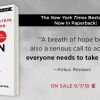8 Best-Selling Pandemic Books Millions Love
Pandemic books recommended by Jeff Dean (Google AI), Indra Nooyi (PepsiCo), and Kaleigh Rogers (science reporter)







When millions of readers and top experts align on pandemic literature, the result is a curated collection of books that illuminate the complexities of global health crises. Pandemic books have surged in relevance, offering not just history but insights into policy, science, and personal preparedness. This convergence of popularity and expert approval highlights proven value for anyone seeking to deepen their understanding of pandemics.
Experts like Jeff Dean, Senior Fellow at Google AI Research, emphasize the importance of historical lessons, spotlighting John M. Barry’s The Great Influenza as a critical resource during moments of social distancing. Meanwhile, Indra Nooyi, former CEO of PepsiCo, found in Barry’s work a lens for interpreting COVID-19. Science reporter Kaleigh Rogers recommends Spillover by David Quammen for its rich exploration of zoonotic diseases, underscoring how animal-to-human transmissions set the stage for pandemics.
While these popular books provide proven frameworks, readers seeking content tailored to their specific pandemic needs might consider creating a personalized Pandemic book that combines these validated approaches, blending expert insights with individual learning goals and backgrounds.
Recommended by Jeff Dean
Senior Fellow & SVP, Google AI Research and Health
“Thanks for the pointer, @joetimmons79! Also, looks like John Barry, the speaker in the video, is an author, & has an interesting looking book about the 1918 flu (if flu pandemic books while social distancing is your cup of tea: I've added to my queue):” (from X)
by John M. Barry··You?
by John M. Barry··You?
After analyzing the 1918 influenza pandemic's catastrophic impact, John M. Barry crafted a detailed narrative exploring how science, politics, and public trust collided during this crisis. You’ll gain insight into the virus’s origins, the medical knowledge of the era, and the challenges leaders faced in conveying harsh realities without distorting facts. The book dives into non-pharmaceutical interventions, community responses, and the lessons applicable to modern health crises, with chapters that dissect military camp outbreaks and governmental communication strategies. If you want to understand the complexities behind pandemic management and the consequences of misinformation, this book offers a sobering, well-researched perspective that’s particularly relevant for public health professionals, policymakers, and anyone interested in epidemic history.
Recommended by Kaleigh Rogers
Reporter covering politics, tech, and science
“@rachsyme Spillover is a fantastic book though. I'd also recommend Pandemic and/or The Fever by @son...” (from X)
by David Quammen··You?
by David Quammen··You?
Unlike most pandemic books that focus on immediate outbreaks, David Quammen explores the deeper origins of emerging diseases by tracing how infections pass from wild animals to humans—a process he calls spillover. You’ll gain insight into the biology behind viruses like Ebola and SARS, following Quammen's firsthand adventures netting bats in China and studying gorillas in the Congo alongside leading scientists. This book is particularly suited for anyone curious about the ecological and scientific factors that trigger pandemics, offering both compelling narratives and scientific context that deepen your understanding of global health risks.
by TailoredRead AI·
by TailoredRead AI·
This tailored book delves into detailed methods for effective pandemic preparedness and safety, focusing on your unique background and goals. It explores key topics such as risk assessment, emergency planning, personal protection, and community response, offering a personalized approach that matches your interests and desired depth. By examining essential safety measures and adaptive behaviors, the book reveals how to build resilience against evolving health threats. This personalized guide synthesizes widely validated knowledge with your specific aims, providing a focused pathway to understanding and readiness that respects your individual context and learning preferences.
Recommended by Jeffrey A Tucker
Editorial Director at AIER, Austrian economics expert
“The review of Scott Atlas's book are great, but I'm disappointed that AMZ has not published mine. I wonder how many other positive reviews are being withheld.” (from X)
by Scott W. Atlas M.D.··You?
Scott W. Atlas challenges the prevailing narratives about the Trump administration’s handling of COVID-19 by drawing directly from his time as a Special Advisor on the White House Coronavirus Task Force. You gain an insider’s view of the intense policy battles, scientific disagreements, and media controversies that shaped decisions on lockdowns, mask mandates, and vaccine rollouts. The book lays bare the complexities behind public health strategies and scrutinizes key figures like Drs. Fauci and Birx, offering a perspective rarely found in mainstream discourse. If you want to understand the intersection of politics, science, and media during the pandemic, this candid account offers detailed episodes and critical evaluations that will provoke your thinking.
by Alfred W. Crosby·You?
by Alfred W. Crosby·You?
What if everything you thought you knew about the 1918 influenza was incomplete? Alfred W. Crosby, a seasoned historian at the University of Texas at Austin, digs deep into this overlooked catastrophe, revealing how the pandemic reshaped American society and why it vanished from collective memory. You’ll explore detailed narratives of the pandemic's spread between 1918 and 1919, alongside reflections on its societal impact and comparisons to later outbreaks like SARS. If you’re interested in understanding the historical context behind pandemics and their cultural aftermath, this book offers a thorough and engaging exploration without sensationalism.
by The Survival Series·You?
What started as a clear need for accessible pandemic knowledge became a straightforward guide that walks you through everything from personal safety to community response. The Survival Series distills complex scientific concepts into simple language, making it easier for you to grasp how pandemics work and what you can do to protect yourself and others. Chapters cover practical preparedness steps, mental resilience techniques, and ways to spot misinformation, ensuring you're not overwhelmed but empowered. This book fits anyone wanting to be ready for current or future health crises, though those seeking in-depth medical analysis might look elsewhere.
by TailoredRead AI·
by TailoredRead AI·
This tailored book explores the essential steps to rapidly master outbreak control with a focus on your unique background and goals. It covers how pandemics unfold, key response actions, and practical measures needed to manage infectious disease crises effectively. By tailoring content to your interests, it reveals critical concepts like transmission chains, containment tactics, and public health coordination that many readers have found invaluable. Emphasizing a personalized approach, this book matches foundational knowledge with your desired focus areas, helping you gain confidence in pandemic response during crucial early periods. It offers a clear, step-by-step path designed to build your skills quickly and purposefully, making complex outbreak dynamics accessible and actionable.
Daniel Kalla's years as an emergency physician shine through in this gripping narrative that explores the terrifying emergence of a new flu pandemic. You delve into the intricate ways viruses cross species barriers, learning about virus mutation and global disease spread, especially through air travel, which Kalla portrays with stark realism. The book's detailed depiction of the World Health Organization's response offers insight into outbreak investigation and containment challenges. If you're intrigued by the mechanisms behind pandemics and the human stories entwined in global health crises, this novel offers a vivid, informed perspective.
by Hourly History·You?
by Hourly History·You?
During the devastating spread of the Black Death, Hourly History explores the pandemic’s brutal sweep across Eurasia with a clear, focused lens. You’ll gain detailed knowledge about the disease’s causes, medieval responses, and cultural impact through chapters on pathology, historic theories, and societal consequences. This book suits anyone curious about how pandemics shaped history and humanity’s reaction over centuries. Its concise format delivers a thorough narrative without overwhelming you, making it a solid pick for history enthusiasts and those seeking context on one of the deadliest pandemics ever recorded.
by Alexandra M. Levitt, Donald R. Hopkins M.D.·You?
by Alexandra M. Levitt, Donald R. Hopkins M.D.·You?
Drawing from her expertise in emerging diseases, Alexandra M. Levitt presents the gripping world of medical detectives who chase down deadly outbreaks across the globe. You’ll gain insight into how these investigators piece together clues from mysterious illnesses, drug-resistant parasites, and viral threats, revealing their investigative methods and scientific rigor. The book offers vivid accounts of real cases, like unexplained deaths in hospitals and bird die-offs, showing how data analysis and fieldwork intersect to fight pandemics. If you’re interested in the science behind outbreak control or want to understand the challenges of infectious disease detection, this book provides a detailed, engaging exploration.
Proven Pandemic Strategies, Personalized ✨
Get expert-backed pandemic insights tailored to your needs without sifting through multiple books.
Trusted by thousands of pandemic enthusiasts and experts worldwide
Conclusion
The 8 books showcased here form a tapestry of pandemic knowledge, weaving together historical analysis, scientific investigation, policy critique, and practical guidance. For those who prefer proven historical context, The Great Influenza and America's Forgotten Pandemic offer foundational perspectives. Readers looking for validated approaches to outbreak origins and investigation might turn to Spillover and Deadly Outbreaks.
If your focus is practical readiness, How to Prepare for a Pandemic delivers clear strategies, while A Plague Upon Our House opens a window into pandemic policy debates. For a broader historical sweep, The Black Death details medieval responses with clarity. Alternatively, you can create a personalized Pandemic book to combine proven methods with your unique needs.
These widely-adopted approaches have helped many readers succeed in navigating the complexities of pandemics, offering both the depth of expert knowledge and the breadth of diverse perspectives necessary to grasp this crucial topic.
Frequently Asked Questions
I'm overwhelmed by choice – which book should I start with?
Start with The Great Influenza for a historically rich understanding that many experts recommend. It sets a strong foundation before exploring more specialized topics.
Are these books too advanced for someone new to Pandemic?
Not at all. Books like How to Prepare for a Pandemic offer straightforward guidance ideal for newcomers, while others provide deeper dives as you progress.
What's the best order to read these books?
Begin with historical accounts like The Great Influenza, then explore scientific perspectives in Spillover, followed by policy insights in A Plague Upon Our House. Practical guides can be read anytime.
Should I start with the newest book or a classic?
Both have value. Classics like America's Forgotten Pandemic ground you in history, while recent works address current challenges and evolving science.
Do I really need to read all of these, or can I just pick one?
You can pick based on your interest—whether history, science, or policy. Each book stands alone but together they offer a comprehensive view.
Can I get tailored pandemic insights without reading all these books?
Yes. While these expert books offer valuable perspectives, you can create a personalized Pandemic book that combines proven methods with your specific interests and needs for efficient learning.
📚 Love this book list?
Help fellow book lovers discover great books, share this curated list with others!
Related Articles You May Like
Explore more curated book recommendations







